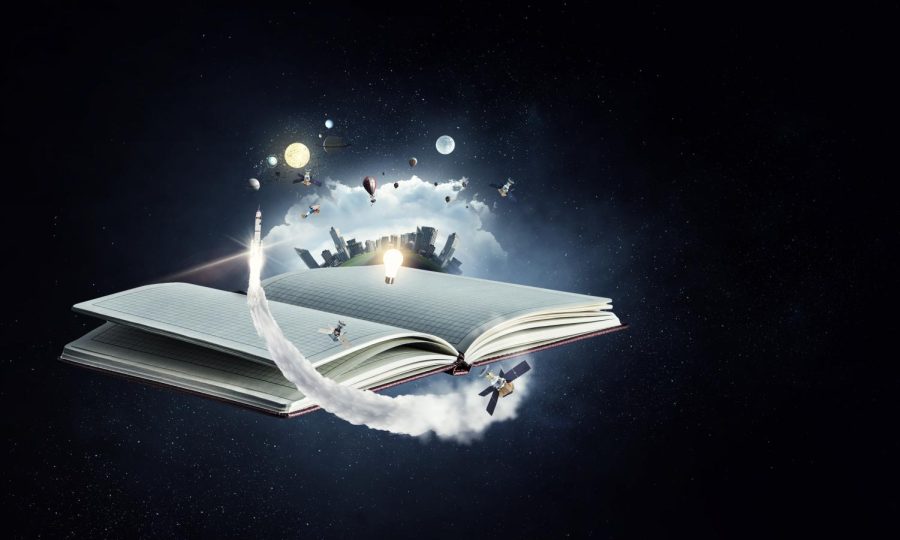Does fiction affect reality?
December 14, 2022
We’ve all heard the repetitive debate about how social media has affected humans– especially teenagers, but we’ve barely discussed how fiction such as tv shows, movies, and books affect our growth from childhood, our mental health, and reality as a whole.
I think this partially ties into the depression rates within gen Z teenagers. Many may feel like they aren’t living up to the “teenage year expectations”, and fall into a state of sadness. In some cases like this, people may use fiction as a coping mechanism as well. When they dont have the romanticized version of life in reality, they may indulge in fiction to cope.
Part of reading and watching media is to feel like you’re in the story itself, and this feeling can be extremely comforting. As said by Eimi Kim, “I read fiction novels to forget about reality and to escape it sometimes.” This is very common within teenagers, and can be healthy, or unhealthy depending on the situation.
After talking about this topic with multiple students, the majority found that growing up with this type of fiction has made it difficult for them to form true long lasting friendships and relationships. According to Alana Cooper, “Due to the media, I kind of have high standards on what a friend should be like, and I think it’s harmed my ability to make friends because I’m looking for this perfect person like in the movies.” Eimi Kim, has said something very similar, “People’s standards of what a friendship is and should be like might be too high, making it a little hard to make friends in real life.”
As a result of watching these shows and movies with unrealistic standards, lots of teenagers want to find friends that they can have fun with, and not people who they genuinely have a connection with emotionally. For a person who looks for emotional connections in relationships, it may be difficult to find people that think the same way as you in high school.
Along with affecting our abilities to create relationships, it also affects our mental health and expectations of reality. Although things such as high school dating and trying new things are normal, many kids feel pressured to experience all of that in high school, because it’s seen as “not living your life to the fullest” if you don’t. This causes children to grow up too fast from a young age, and can affect the way they view relationships and life itself.
This is where romanticization comes into play– Many teenagers going into high school harbor these hopes in the back of their mind, and may be extremely disappointed when they don’t become a reality.
What affects us is the way certain fiction is portrayed. Alongside social media, fiction may affect us just as much. In fact, a lot of social media standards were created because of unrealistic expectations in movies and books. Barbie, for example, is a white, blonde, blue-eyed girl who is deemed to be extremely beautiful. Lot’s of little girls grow up having her as their beauty expectation, and when released into the real world, are struggling with their own appearance. The same type of women like Regina George from Mean Girls, and Cher from Clueless, are represented in media, and are the token women for young girls to look up to. Being both harmful and helpful, fiction does affect reality in many ways.

